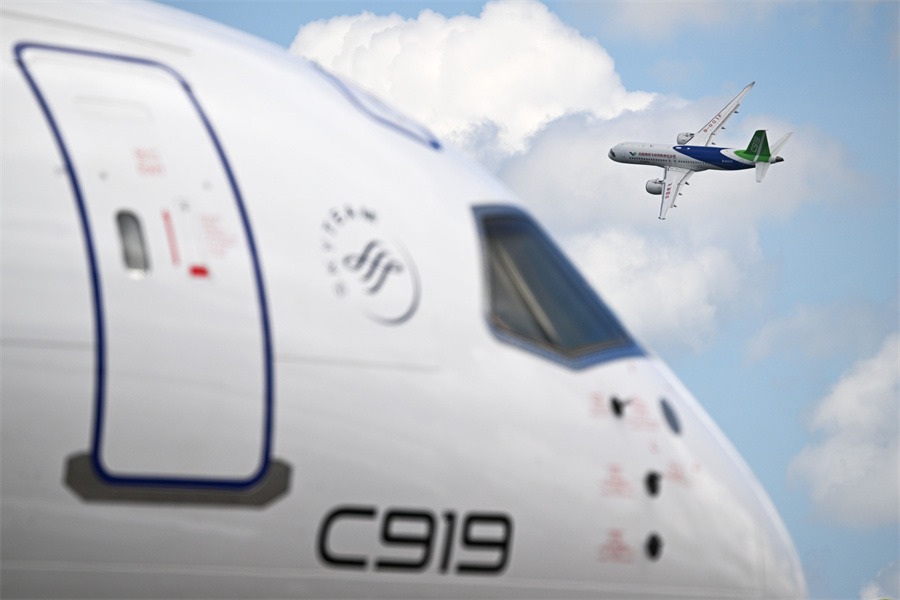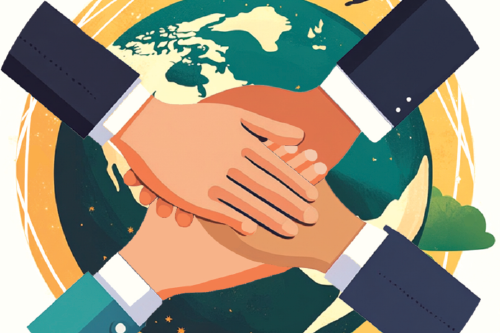Why Chinese premier pays first overseas visit to Europe


At the invitation of German Chancellor Olaf Scholz and the French government, Chinese Premier Li Qiang is scheduled to visit the two countries from June 18-23, which sends out a clear message that China attaches great importance to its relations with Europe.
China and Europe have maintained close communication and cooperation. Seeing the European Union (EU) as a strategic force in the international arena, China has made developing China-EU relations a top priority in its foreign policy.
Over the years, Chinese and European leaders have made frequent contacts. Even in the COVID-19 pandemic, they made phone calls or held video meetings. Since the end of last year, a slew of European leaders, including German Chancellor Olaf Scholz and French President Emmanuel Macron, have visited China.
Economic and trade ties between the two sides have become ever closer. They have been major forces in maintaining world peace, promoting shared development, and advancing human civilization, whose relations serve the common interests of not only the two sides, but also the international community at large, particularly as global challenges continue to escalate.
China is committed to developing its relations with the EU in a spirit of mutual benefit and win-win results. The two sides have established more than 70 mechanisms for consultations and dialogue covering various fields such as politics, economy, trade, culture, science and technology. Trade between the two sides in various fields, like lithium batteries and new energy vehicles, is rapidly expanding. Chinese investment is supporting the EU's transition to green, digital, and intelligent industries.
By the end of 2022, the stock of bilateral investment had exceeded 230 billion U.S. dollars. In 2022, Europe invested 12.1 billion dollars in China, a significant increase of 70 percent compared to the previous year, with the automotive industry continuing to be the largest hot spot. During the same period, Chinese investment in Europe increased by 21 percent to 11.1 billion dollars. Both sides have benefited from such mutually beneficial ties.
By choosing Europe as the destination of his first overseas visit since taking office, the Chinese premier is set to give another boost to the already fruitful bilateral relations.
In Germany, Li will hold the seventh China-Germany inter-governmental consultation, attend the 11th China-Germany Economic and Technical Cooperation Forum, and have in-depth exchanges of views with representatives from the economic communities of the two countries.
In France, he will attend the Summit for a New Global Financing Pact initiated by President Macron, and have in-depth communication with the French side on strengthening exchanges and cooperation in various fields as China and France will celebrate the 60th anniversary of diplomatic ties next year.
Instead of being a so-called "risk," "challenge" or "rival," China is proving itself to be a reliable partner for Europe. A recent survey conducted by the European Council on Foreign Relations among more than 16,000 people in 11 EU countries has revealed that the majority of Europeans believe Europe should maintain economic and trade relations with China. The prevailing view in almost every country the institution polled is that China is Europe's "necessary partner."
In its first and newly released national security strategy, Germany recognizes that China "remains a partner without whom many global challenges and crises cannot be resolved." European leaders like Macron have also shown the courage to issue a clarion call for greater cooperation with China, echoing the sentiment of most Europeans.
Currently, high inflation, sluggish growth and the lingering impact of the Ukraine crisis all present significant challenges for Europe. Against this backdrop, strengthening cooperation with China and promoting mutually beneficial relations represent the most viable option to break free from its current predicament.
With the premier's visit, China is working to expand cooperation with its European partners, while Europe should guard against a bloc versus bloc logic and make its strategic choice autonomously.


































